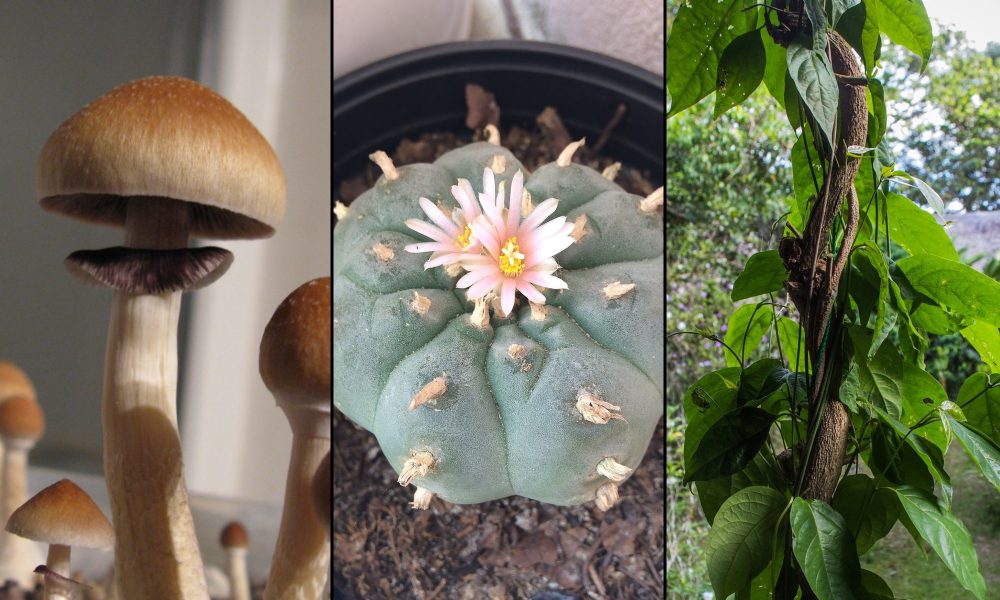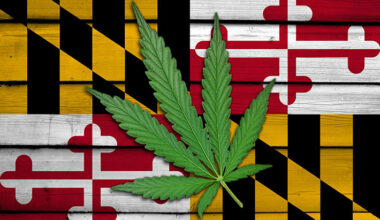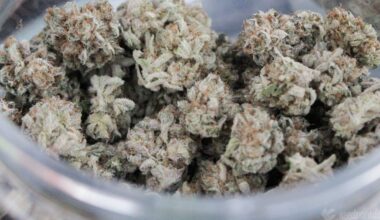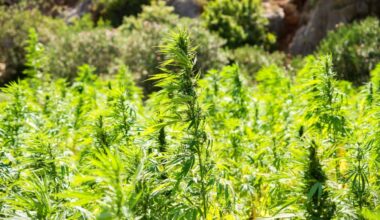A bill to legalize psychedelics in New York has been significantly revised, with new provisions to allow for the possession, gifting and sanctioned use of natural plants and fungi in ceremonial and therapeutic settings for adults 21 and older.
The amended legislation from Assemblymember Linda Rosenthal (D) was filed on Monday, setting the stage for legislative action in the 2023 session.
As originally introduced last year, the bill would have simply removed psilocybin and psilocyn from the state’s list of controlled substances, effectively legalizing the compounds.
Now the measure provides a more robust regulatory framework for a wider range of psychedelics, and it contains several protections for people who use the entheogenic substances in compliance with state law.
Under the legislation, which has been recommitted to the Assembly Health Committee, the “possession, use, cultivation, production, creation, analysis, gifting, exchange, or sharing” of psychedelics like psilocybin, ibogaine and mescaline would be legal for adults 21 and older.
It would also authorize the “supervision, guidance, peers engaging in risk mitigation, religious, spiritual, or related supportive services” for psychedelics, with or without remuneration.
Non-commercial entities and religious organization would be permitted to possess, grow, administer and exchange the covered entheogens.
“The failed war on drugs has led to devastating consequences for people across the nation,” a justification memo attached to the bill says. “The criminalization of certain substances has not only left countless people incarcerated, it also has prevented individuals from accessing natural hallucinogens that can provide relief in battling mental health problems, substance use disorder, chronic pain or other health conditions.”
“The continued criminalization of the use of these substances puts New Yorkers at unnecessary risk of incarceration and denies access to people who are desperate for their salutary effects,” it continues.
The bill stipulates that state and local law enforcement “shall not cooperate with or provide assistance to the government of the United States or any agency thereof in enforcing the federal Controlled Substances Act” as it concerns cases related to legalized psychedelics activities.
There are a number of new provisions that provide legal protections for adults who lawfully use psychedelics, including sections preventing the denial or revocation of business licenses and adverse employment actions.
It further states that conduct made legal under the proposal can’t “constitute child abuse or neglect without a finding of actual threat to the health or welfare of a child based on all relevant factors.”
“Conduct permitted by this article shall not, by itself, be the basis to deny eligibility for any public assistance program, unless required by federal law,” the text also says.
New York localities wouldn’t be allowed to enact laws criminalizing psychedelics, but they could “adopt and implement legislation and policies which bear directly on or are related to natural plant or fungus-based hallucinogens in furtherance” of the bill.
Finally, the proposal would remove psilocybin, psilocyn, DMT, mescaline and ibogaine from the state’s banned substances list.
The 2022 legislative session in New York ended in June, and the new bill text was filed ahead of the 2023 session with the aim of giving lawmakers additional time to consider the new provisions when they reconvene in Albany.
The revision was drafted with input from a variety of advocacy groups, including Decrim First NY, Hudson Valley Psychedelic Society, Student for Sensible Drug Policy NY, and Decriminalize Nature NY.
Decrim First NY Coordinator Aaron Genuth told Marijuana Moment on Thursday that the “goal of the legislation is to really set the standard of what we’re hoping to accomplish in New York” in a way that also “moves us in a direction that’s aligned with drug reform and ending the drug war” more holistically.
The revised version is also being cosponsored by Assemblymember Jo Anne Simon (D).
—
Marijuana Moment is tracking more than 1,500 cannabis, psychedelics and drug policy bills in state legislatures and Congress this year. Patreon supporters pledging at least $25/month get access to our interactive maps, charts and hearing calendar so they don’t miss any developments.![]()
Learn more about our marijuana bill tracker and become a supporter on Patreon to get access.
—
Rosenthal, for her part, separately filed a bill last year that would create a “psychedelic research institute” tasked with studying the therapeutic potential of the substances for certain conditions and making policy recommendations.
She and Assemblymember Pat Burke (D), who sponsored another measure to legalize the medical use of psilocybin for certified patients in clinical settings, participated in a psychedelics symposium earlier this year and discussed their competing proposals.
Psychedelics reform has been advancing locally and at the state level across the country in recent years since Denver became the first U.S. city to decriminalize psilocybin in 2019.
Statewide in Colorado, voters will get to decide on a historic ballot initiative next month that would legalize the possession of psychedelics for adults and creating psilocybin healing centers in the state. Polling on the proposal has returned mixed results.
Oregon voters did approve a 2020 measure to legalize psilocybin therapy, but the treatment centers have not yet opened so there’s still no clear model for that aspect of the Colorado initiative.
At the federal level, a Rep. Earl Blumenauer (D-OR) said during a House Ways & Means hearing last month that psychedelics hold “real potential” as alternative mental health therapies with “less impact” than traditional pharmaceuticals.
At the beginning of this year, Blumenauer led a bipartisan letter requesting that DEA allow terminally ill patients to use psilocybin as an investigational treatment without the fear of federal prosecution under federal “Right to Try” (RTT) law.
Bipartisan and bicameral congressional lawmakers then filed companion bills in July to clarify that RTT statute enacted under the Trump administration is meant to give those seriously ill patients access to Schedule I drugs, including marijuana and psychedelics like psilocybin and MDMA.
Meanwhile, congressional appropriations leaders have included language in recent spending legislation that urges federal agencies to continue supporting research into the therapeutic potential of psychedelics.
In July, the House voted in favor of two psychedelics-related amendments to a defense bill, including one that would require a study to investigate psilocybin and MDMA as alternatives to opioids for military service members and another that would authorize the defense secretary to provide grants for studies into several psychedelics for active duty service members with PTSD.
But while advocates are encouraged by these incremental developments amid the national psychedelics decriminalization movement, some lawmakers feel that Congress isn’t keeping pace with the public and the science.
Rep. Jared Huffman (D-CA) told Marijuana Moment last month that he’s done his research and believes that natural plants and fungi like psilocybin can be a therapeutic “game changer,” but he said that it’s “embarrassing” how slow other federal lawmakers have been to evolve on the issue.
Federal health officials have taken note of the increased adult use of certain entheogenic substances. As National Institute on Drug Abuse (NIDA) Director Nora Volkow put it earlier this year, the “train has left the station” on psychedelics.
The U.S. Department of Health and Human Services (HHS) recently said that it is actively “exploring” the possibility of creating a task force to investigate the therapeutic of certain psychedelics like psilocybin and MDMA in anticipation of federal approval of the substances for prescription use.
That came in response to letters from bipartisan congressional lawmakers, state legislators and military veterans, who implored the HHS secretary to to consider establishing an “interagency taskforce on the proper use and deployment of psychedelic medicine and therapy.”
Photo elements courtesy of carlosemmaskype and Apollo.
Medical Disclaimer:
The information provided in these blog posts is intended for general informational and educational purposes only. It is not a substitute for professional medical advice, diagnosis, or treatment. Always seek the advice of your physician or other qualified healthcare provider with any questions you may have regarding a medical condition. The use of any information provided in these blog posts is solely at your own risk. The authors and the website do not recommend or endorse any specific products, treatments, or procedures mentioned. Reliance on any information in these blog posts is solely at your own discretion.







